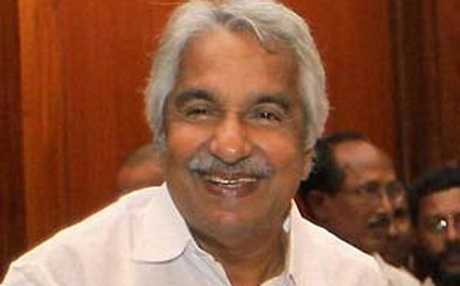New Delhi, Jul 16: A group of 174 Indian nationals, including seven minors, has filed a lawsuit against the recent presidential proclamation on H-1B that would prevent them from entering the United States or a visa would not be issued to them.
Judge Ketanji Brown Jackson at the US District Court in the District of Columbia issued summonses on Wednesday to Secretary of State Mike Pompeo and acting Secretary of Homeland Security Chad F Wolf, along with Labor Secretary Eugene Scalia.
The lawsuit was filed in the US District Court on Tuesday.
"The proclamation 10052's H-1B/H-4 visa ban hurts the United States' economy, separates families and defies the Congress. While the two former points render it unseemly, the latter point renders it unlawful," said the lawsuit filed by lawyer Wasden Banias on behalf of the 174 Indian nationals.
The lawsuit seeks an order declaring the presidential proclamation restriction on issuing new H-1B or H4 visas or admitting new H-1B or H-4 visa holders as unlawful. It also urges the court to compel the Department of State to issue decisions on pending requests for H-1B and H-4 visas.
In his presidential proclamation on June 22, Trump temporarily suspended issuing of H-1B work visas till the end of the year.
"In the administration of our nation's immigration system, we must remain mindful of the impact of foreign workers on the United States labor market, particularly in the current extraordinary environment of high domestic unemployment and depressed demand for labor," said the proclamation issued by Trump.
In his proclamation, Trump said the overall unemployment rate in the United States nearly quadrupled between February and May of 2020 -- producing some of the most extreme unemployment ever recorded by the Bureau of Labor Statistics.
While the May rate of 13.3 per cent reflects a marked decline from April, millions of Americans remain out of work.
The proclamation also extends till year-end his previous executive order that had banned issuance of new green cards of lawful permanent residency. Green Card holders, once admitted pursuant to immigrant visas, are granted "open-market" employment authorisation documents, allowing them immediate eligibility to compete for almost any job in any sector of the economy, Trump said.
Forbes, which first reported the lawsuit filed by the Indian nationals, said the complaint points out that the Congress specified the rules under which H-1B visa holders could work in the US and balanced the interests of US workers and employers.
"The complaint seeks to protect H-1B professionals, including those who have passed the labor certification process and possess approved immigrant petitions. Such individuals are waiting for their priority date to obtain permanent residence, a wait that can take many years for Indian nationals," Forbes reported.
Meanwhile, several lawmakers urged Scalia on Tuesday to reverse the work visa ban.
"Throughout this administration, the president has continued to lament the alleged abuses of the immigration system while failing to address the systemic problems that have persisted and allowed businesses and employers to exploit and underpay immigrant workers, guest workers and American workers," the lawmakers wrote.
"This misguided attempt by the president to scapegoat immigrants for policy failures during the pandemic not only serves to hurt immigrants, but dismisses the true problem of a broken work visa program that is in desperate need of reform," said the letter, which among others was signed by Congressmen Joaquin Castro, Chair of the Congressional Hispanic Caucus; Bobby Scott, Chair of the Education and Labor Committee; Karen Bass, Chair of the Congressional Black Caucus; Judy Chu, Ra l Grijalva, Vicente Gonzalez, Yvette Clarke and Linda S nchez.
 Thiruvanathapuram, Sep 5: In further embarrassment to Chief Minister Oommen Chandy, under attack from opposition over the solar scam, Kerala government Chief Whip P C George today wrote to AICC chief Sonia Gandhi claiming that the CM was aware of certain facts on the matter and the issue had dented the image of the party-led UDF government in the state.
Thiruvanathapuram, Sep 5: In further embarrassment to Chief Minister Oommen Chandy, under attack from opposition over the solar scam, Kerala government Chief Whip P C George today wrote to AICC chief Sonia Gandhi claiming that the CM was aware of certain facts on the matter and the issue had dented the image of the party-led UDF government in the state.




Comments
Add new comment